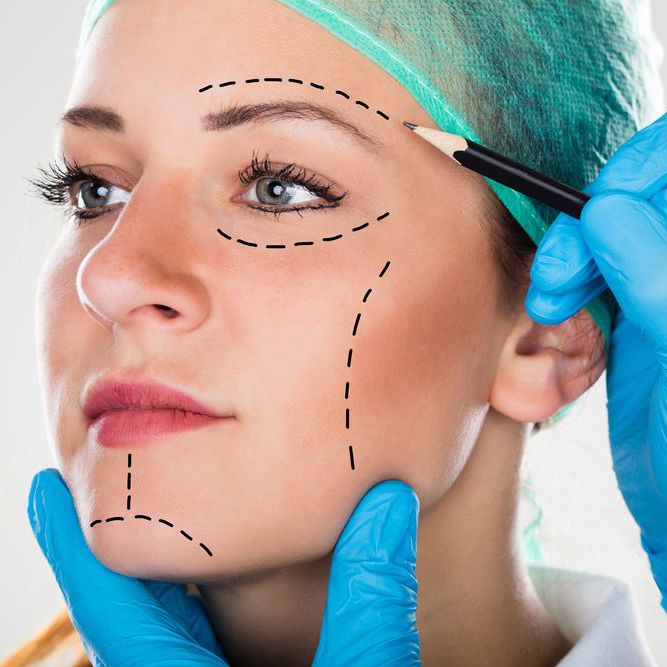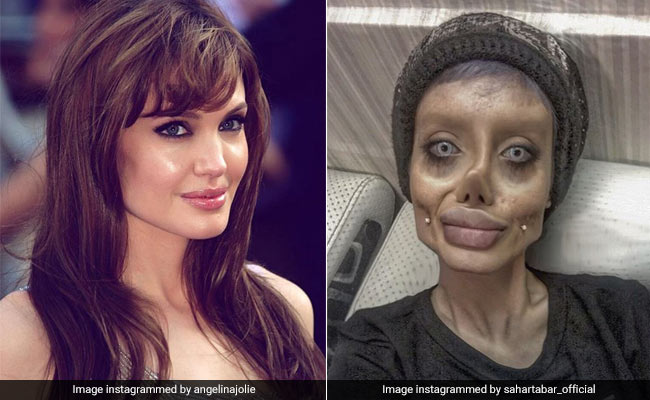Examining the Psychological and Social Factors That Drive Individuals to Consider Cosmetic Surgery as a Means of Enhancement
The decision to pursue cosmetic surgical procedure typically extends past simple visual appeals, linking with mental and social dynamics that merit thorough assessment. Variables such as self-worth, pervasive societal appeal standards, and the pervasive impact of social media converge to shape specific inspirations for surgical enhancement.
The Duty of Self-Esteem
Self-esteem substantially affects a person's decision to seek cosmetic surgery. Individuals with low self-esteem frequently regard themselves in a negative light, leading to sensations of insufficiency concerning their physical look.

Eventually, the function of self-confidence in the decision-making process concerning cosmetic surgery highlights the complex interaction in between body photo, personal fulfillment, and mental wellness. Comprehending this relationship is essential for healthcare professionals to make sure that individuals are making educated decisions rooted in realistic expectations and psychological well-being.
Social Beauty Criteria
Influenced by prevalent media portrayals and cultural narratives, societal beauty criteria play a critical duty in shaping individuals' assumptions of their own bodies. These criteria are frequently characterized by an idyllic form of elegance that emphasizes attributes such as slimness, youthful vigor, and balance. As these suitables are perpetuated with numerous networks, consisting of television, movie, and advertising, individuals regularly internalize these messages, bring about dissatisfaction with their natural look.
The implications of these social standards prolong beyond visual preferences; they can affect self-confidence, psychological health and wellness, and social relationships. Individuals who regard themselves as dropping brief of these requirements might experience sensations of inadequacy, prompting a desire for cosmetic surgical procedure as a way of achieving societal authorization. This pursuit is typically sustained by the idea that conforming to these perfects will certainly boost not just physical look but additionally social standing and individual fulfillment.

Impact of Social Media
The effect of social appeal criteria is further enhanced by the increase of social media sites platforms, where curated images and idealized representations of beauty are ubiquitous. Users are regularly revealed to filteringed system and modified photos, which commonly show unattainable physical attributes. This exposure grows a society of contrast, leading individuals to assess their own appearance versus these commonly impractical standards.
Social media site influencers and celebs regularly promote aesthetic procedures, stabilizing the idea that medical improvements are a feasible methods for achieving social ideals (plastic surgery rancho cucamonga). The visibility of these improvements can create an assumption that going through plastic surgery is a basic technique, consequently affecting individuals to think about comparable interventions as a pathway to enhanced self-confidence and social acceptance
Moreover, the interactive nature of social media enables immediate feedback via likes and comments, further reinforcing the need to comply with popular charm Bonuses standards. Such communications can worsen feelings of insufficiency and drive individuals toward plastic surgery as a means of obtaining validation. Inevitably, social media plays a crucial function in shaping assumptions of beauty, which significantly influences the decision-making processes bordering cosmetic surgery.

Cultural Viewpoints on Look
Across various societies, understandings of appearance are deeply rooted in historic, social, and economic contexts, forming individuals' views on elegance and value. In several societies, look functions as a substantial marker of identity, influencing social status, professional opportunities, and individual connections. For instance, in some cultures, light skin is commonly connected with riches and privilege, while others might idealize darker complexion as icons of stamina and credibility.
Additionally, traditional appeal requirements are commonly perpetuated with cultural narratives, media depictions, and household affects, resulting in differing ideals throughout various regions (plastic surgery rancho cucamonga). In Western societies, the emphasis on young people and physical fitness commonly drives individuals toward aesthetic enhancement, while in specific Eastern cultures, more refined modifications lined up with typical aesthetic appeals may be chosen
Globalization and the spreading of digital media have better complicated these characteristics, creating a hybridization of charm perfects that goes beyond geographical limits. As individuals increasingly navigate these cultural stories, the pressure to satisfy details appearance standards can result in the need for cosmetic surgical treatment, mirroring an intricate interplay of cultural values and individual desires. Comprehending these social point of views is crucial in resolving the inspirations behind cosmetic surgery considerations.
Psychological Influences of Plastic Surgery
Lots of people looking for cosmetic surgical treatment report experiencing profound mental impacts that can considerably alter their self-perception and psychological wellness - plastic surgery rancho cucamonga. The wish for physical enhancement typically stems from underlying concerns such as reduced self-esteem, body dysmorphic disorder, or social stress concerning beauty criteria. For some, the instant post-operative phase can lead to a short-lived boost in self-confidence and satisfaction with their look, cultivating a sense of empowerment
Nonetheless, these positive sensations may not be sustaining. Research study suggests that while some individuals experience improved self-confidence, others may deal with increased anxiousness or anxiety if their assumptions are not satisfied. This discrepancy can emerge from unrealistic suitables perpetuated by media representation and social narratives bordering elegance.
Moreover, the psychological implications of plastic surgery extend past the person. Relationships with friends and family might be strained as social characteristics shift, resulting in sensations of seclusion or alienation. Eventually, the mental impacts of plastic surgery are diverse and linked here complex, requiring cautious factor to consider by both prospective individuals and doctor to make certain enlightened decision-making their explanation and realistic expectations.
Verdict
To conclude, the decision to go after plastic surgery is significantly influenced by a mix of self-esteem problems, social beauty requirements, and cultural point of views on appearance. The prevalent reach of social media sites better exacerbates these stress, promoting unrealistic ideals that individuals frequently aim to attain. Comprehending these mental and social elements is vital for attending to the motivations behind cosmetic surgical procedure, highlighting the requirement for a much more nuanced conversation surrounding beauty and self-acceptance in modern culture.
The choice to go after cosmetic surgical treatment typically prolongs past plain visual appeals, intertwining with social and emotional dynamics that warrant thorough exam. Inevitably, social media plays an essential role in forming understandings of charm, which considerably influences the decision-making procedures surrounding cosmetic surgery.
As individuals increasingly browse these cultural stories, the stress to adhere to certain appearance criteria can lead to the wish for cosmetic surgery, mirroring a complicated interaction of social values and individual goals.In verdict, the decision to seek cosmetic surgical treatment is dramatically affected by a combination of self-worth issues, social charm requirements, and cultural viewpoints on appearance. Comprehending these psychological and social factors is necessary for dealing with the inspirations behind cosmetic surgery, highlighting the requirement for an extra nuanced discussion bordering charm and self-acceptance in modern society.